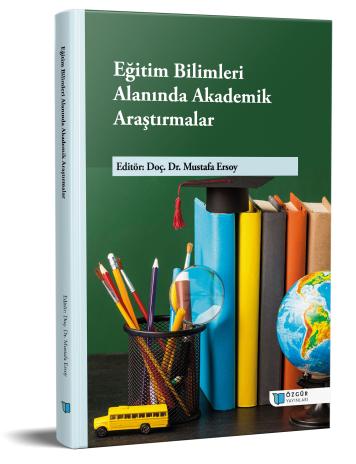
Understanding Foreign Students' Migration Experiences
Chapter from the book:
Ersoy,
M.
(ed.)
2025.
Academic Research in the Field of Education Sciences.
Synopsis
Türkiye, hosting one of the world's largest refugee populations, faces multidimensional challenges within its education system, including language barriers, economic inequalities, discrimination, and institutional unpreparedness. Migration experiences diverge across distinct phases, particularly for school-aged migrants or refugees: the pre-migration phase (characterized by war, violence, economic crisis); the migration phase (involving perilous journeys and human rights violations); and the post-migration phase (marked by difficulties in learning Turkish, social exclusion, and academic maladjustment).
Focusing on lived experiences offers three principal advantages for understanding migration processes and their impacts on individuals, institutions, and societies. Firstly, it centers the individual, conceptualizing migrant students not as passive objects devoid of agency in their own narratives, but as active subjects who generate solutions to problems and exercise initiative regarding their futures. Secondly, it identifies systemic deficiencies as manifested in individuals' lives, thereby revealing structural issues such as inadequate language support, economic barriers, insufficient teacher preparedness, and discriminatory policies. Thirdly, it provides essential data for designing inclusive policies, guiding the development of interventions such as psychosocial support, culturally responsive curricula, and financial assistance programs.
Recent research on migrant/refugee students in Türkiye has predominantly employed qualitative methodologies. Analysis of findings from 13 such studies, examined through the lens of experience, reveals that certain challenges are reported by almost all students. Furthermore, experiences vary significantly by educational level: while language proficiency determines social acceptance in primary school, identity-based discrimination intensifies in secondary education. Positive teacher attitudes and peer solidarity emerge as pivotal factors facilitating adaptation. In conclusion, comprehending migration experiences is crucial not only for addressing individual trauma but also for shaping the institutional transformations necessary for education systems.

